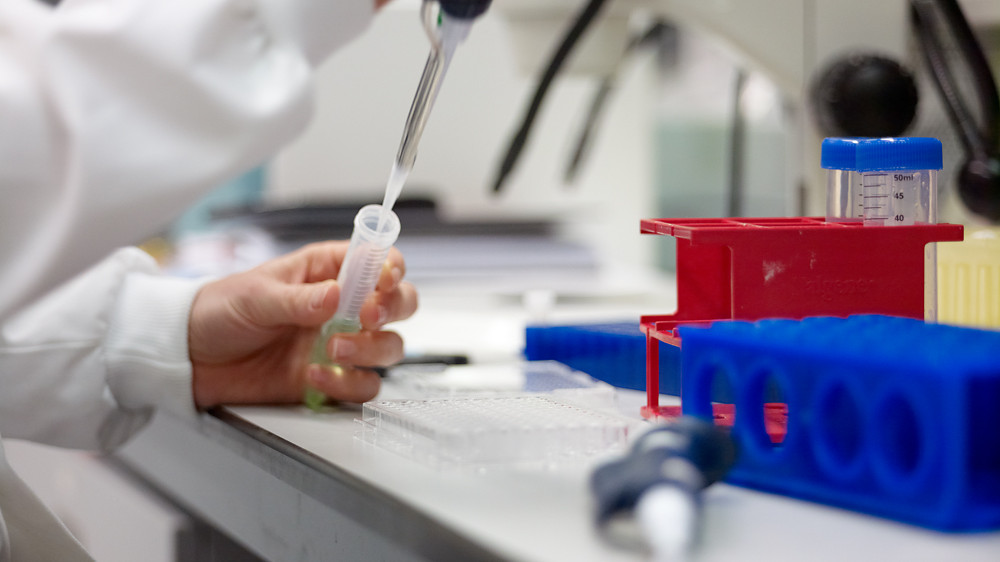Over 150 project grants supported through NC3Rs funding

We have recently committed over £2.8M to six new project grants supporting the development of new 3Rs approaches and technologies.
The majority of the awards in this year’s cohort focus on technologies to replace the use of animals. This reflects the current scientific landscape and the increasing interest in alternatives to in vivo research, as set out in the recent NC3Rs Strategy.
One of the awards was to Professor Darryl Overby at Imperial College London who will develop a novel perfusion device to study the early stages of metastasis, replacing some studies in the commonly used mouse models of cancer. The device is a tissue chip in which explanted material from the mouse’s brain, lung or liver is sealed by microchannels – cancer cells are added to the flow of media through the channels allowing the process of metastasis of cancer cells from the blood to be mimicked. The chips are suitable for imaging technologies allowing the infiltration of the cells to be tracked over space and time.
Dr Andrew Blanks at the University of Warwick has been funded to build further complexity into an in vitro model for studying pregnancy disorders, such that it can be used to replace some studies using animals. There are currently no effective treatments to prevent miscarriage, estimated to occur in 15% of pregnancies, or preterm birth, the highest cause of neonatal morbidity and mortality. Pregnancy disorders are studied using animal models including mice, rats and guinea pigs however their reproductive systems are very different to that of humans. Andrew and colleagues have previously developed organoids from human endometrial cells, which can be manipulated to replicate different pathologies associated with increased miscarriage risk. With NC3Rs funding, Andrew will now add myometrial cells to the model to replicate the inner layer of the myometrium, the main muscle of the uterus. This layer plays an important role in implantation and fertility and the provision of additional complexity in the model will allow it to be applied to a wider range of studies.
One of the awards focuses on improving animal welfare, specifically that of mice used to assess the efficacy of antivenoms in the gold standard test recommended by the WHO – the lethality neutralisation assay. In the test, antivenom therapies are administered to mice mixed with fatal doses of snakebite venom in order to establish the neutralising capacity of the therapy. Many snake venoms are neurotoxic and the assay can lead to a number of adverse effects in the mice including paralysis, seizures and haemorrhages. Dr Stuart Ainsworth and colleagues plan to develop a new model for antivenom assessments using a more clinically relevant route by administering the venom in areas that are typical for snakebites, such as the limbs. This provides an opportunity to refine the assay as the venom is not immediately systemic, (the typical route of delivery currently is intravenous administration), slowing down the appearance of the most severe adverse effects. This will allow Stuart to identify biomarkers, such as coagulation enzyme levels, that indicate systemic envenoming to establish humane endpoints for the assay that minimise suffering.
2022 NC3Rs project grants awards
Replacement in vivo preclinical models to substantially refine and reduce severe protocols used in snakebite envenoming research – Dr Stuart Ainsworth et al. Liverpool School of Tropical Medicine (£399,300)
Development of endometrial/ myometrial organoids to study disorders of pregnancy and parturition – Dr Andrew Blanks et al. University of Warwick (£462,425)
Development of an in vitro system that mimics B and T helper cell responses in porcine lymph nodes – Dr Wilhelm Gerner et al. The Pirbright Institute (£434,871)
Establishment of the thermotolerant Arabian killifish as a model for infection studies – Dr Tetsuhiro Kudoh et al. University of Exeter (£552,009)
Refining in vivo studies of cancer metastasis with next-generation explant-in-chip perfusion models – Professor Darryl Overby et al. Imperial College London (£514,195)
A 3Rs platform for glial research: From animal to human to in silico models – Professor Dmitri Rusakov et al. University College London (£528,354)
